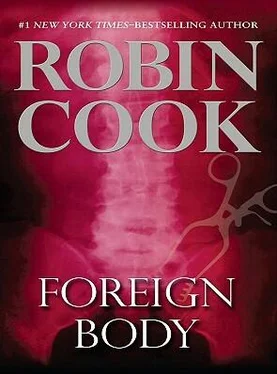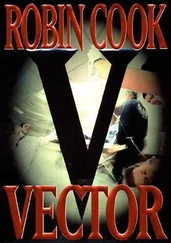“Arrhythmia my ass,” Jennifer snapped. “Oh, she had a few PVCs way back when, but it was found to be due to ephedrine in an over-the-counter cold remedy she was taking. The important thing is that the PVCs disappeared as soon as she stopped the med, and never came back.”
It was now Kashmira’s turn to be silent, necessitating for Jennifer, after a pause, to question if the call had been dropped.
“No, I’m still here,” Kashmira intoned. “I’m not quite sure I know what to say. I’m not a doctor; I only know what the doctors tell me.”
A touch of guilt softened Jennifer’s response to the horrid news. Instantly, she felt a slight embarrassment about blaming the messenger. “I’m sorry. I’m just so upset. My grandmother was very special to me. She was like a mother.”
“We are all truly sorry for your loss, but there are decisions to be made.”
“What kind of decisions?”
“Mainly concerning disposition of the body. With a signed death certificate, which we already have, we need to know if you plan to have the body cremated or embalmed and whether you plan to ship it back to the States or have it remain here in India.”
“Oh! Good God,” Jennifer murmured under her breath.
“We know it’s hard to make decisions under the circumstances, but these decisions must be made. We asked your father, since he is listed in the contract as next of kin, but he said you, as a near doctor, should handle it, and he’s faxing us a statement to that effect.”
Jennifer rolled her eyes. Such a trick to avoid responsibility was so typical of Juan. He was shameless.
“Considering this awful circumstance, we had expected Mr. Hernandez to come here to India forthwith at our expense, but he said he was unable to travel because of a back injury.”
Yeah, sure, Jennifer silently mocked. She was well aware that every November he could drive all the hell up to the Adirondacks to hunt and climb over mountains with his other worthless buddies with no trouble at all.
“We will surely extend the same invitation to you as the new next of kin. The contract your grandmother signed included airfare and lodging for a relative to accompany her, but she had said it was not needed. Anyway, funds are still available.”
Jennifer felt herself getting choked up, imaging her grandmother dying in far-off India, and her body alone on some cold slab in a mortuary cooler. With travel, room, and board available, she knew instinctively she could not let her granny down, never mind the inconvenience of her personal responsibilities — namely, medical school and her new surgical rotation. She’d never forgive herself, despite the fact that her grandmother had not conveyed to Jennifer that she was going in the first place.
“Arrangements could be made through the American embassy and documents signed from afar, but your presence is definitely preferable. It is safer under such circumstances when a family member is present to avoid any mistakes or misunderstanding.”
“Alright, I’ll come,” Jennifer said abruptly, “but I want to come immediately. That means today if possible.”
“That should not be a problem if there are seats on the late-afternoon Singapore flight through Tokyo. We’ve had American patients from the L.A. area before, so I’m familiar with the schedule. The bigger problem will be the visa, but I should be able to arrange that through the Indian health ministry for a special emergency M visa. We can let the airline know from this end. I will need your passport number just as soon as possible.”
“I’ll head to my apartment and call you with it,” Jennifer promised. She was glad she had one, and the only reason she did was because of her grandmother. Maria had taken her and her two brothers to Colombia to meet relatives when she was nine. She was also glad she’d made the effort to renew it.
“Perhaps I’ll have most of the arrangements done by the time you call back. Despite the hour here in India, I will do it right now. But before I let you go, I want to ask again whether you want your grandmother’s body cremated, which we recommend, or embalmed.”
“Don’t do either until I get there,” Jennifer said. “Meanwhile, I’ll ask my two brothers what they think.” Jennifer knew that was a lie. She and her brothers had gone in opposite directions in life, and they rarely talked. She didn’t even know how to get a hold of them, and for all she knew they were still in prison for dealing drugs.
“But we need an answer. The death certificate is already signed. You must decide.”
Jennifer hesitated answering. As a matter of habit whenever someone pushed her, she pushed back. “I assume the body is in a cooler.”
“It is, but our policy is to take care of it immediately. We don’t have the proper facilities, as Indian families claim their deceased kin immediately to cremate or bury, but mostly cremate.”
“A good part of the reason I’m coming is to see the body.”
“Then we can have it embalmed for you. It will be far more presentable.”
“Look, Ms. Varini,” Jennifer said. “I’m coming halfway around the world to see my grandmother. I don’t want her disturbed until I arrive. I certainly don’t want her sliced and diced by an embalmer. I’ll probably have her cremated, but I don’t want to decide until I see her one last time, okay?”
“As you wish,” Kashmira said, but with a tone that suggested she strenuously disagreed with the decision. She then gave Jennifer her direct-dial number with the insistence that Jennifer get her passport details back to her just as soon as possible.
Jennifer flipped her phone closed. Her perplexity and annoyance at the case manager’s inappropriate and continued insistence that she make a decision about what to do with her grandmother’s body, when she clearly indicated she didn’t yet know, at least had the effect of taking the edge off her grief. But then Jennifer shrugged her shoulders. The situation was probably just another example of how some people lacked common sense in regard to social skills.. Kashmira Varini was probably one of those midlevel administrators who had a box next to “dispose of body” that needed to be checked off.
Leaving the locker room at a fast walk, she planned her next few hours, which she sensed would also help take her mind off her grandmother’s passing. First she would need to go back into the OR suite to seek out Dr. Peyton and explain the situation. She would then rush to her apartment, get her passport, and call in the number. Then she would head over to the medical school and explain everything to the dean of students.
After passing through the main OR doors, Jennifer stopped at the main desk. While she waited to ask one of the busy head nurses if Dr. Peyton and his students were still in the anesthesia room where she’d left them, she found herself pondering a perplexing issue: How was it that she learned of her grandmother’s death from CNN, of all places, some hour and a half before she heard it from the hospital? Since she couldn’t think of a single possible explanation, she decided that once she got to India, she was going to try to ask the hospital authorities. It was her general understanding that next of kin were supposed to be notified before names were given out to the media, although it occurred to her that this might be the case only in the United States and not in India. But that thought led to another: Why was CNN even interested in putting her grandmother’s name on the air? It wasn’t as if she were a celebrity. Was it just as a lead into the issue of medical tourism? And who was this known, reliable source who claimed that her grandmother’s death was merely the tip of the iceberg?
October 15, 2007
Читать дальше












